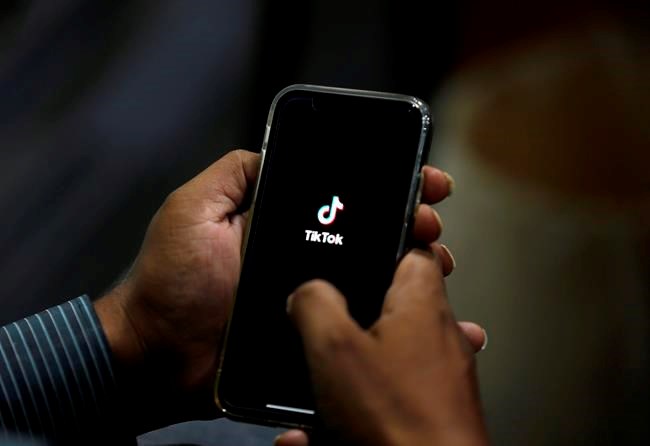The short-video app TikTok has chosen Oracle as its corporate
That much is known. Everything else is confusion, at least to outsiders. For instance:
— What does it mean that, as Oracle declared, it will become a “trusted technology provider” for TikTok? Is this a joint venture, a vendor agreement or something else? Oracle is pointedly not referring to its deal as a sale or acquisition.
— Will Trump approve such an arrangement after having threatened a ban if TikTok remains owned by its China-based parent ByteDance? Would it answer the national-security concerns around potential data siphoning, censorship and propaganda from Beijing that Trump raised?
— Will the Chinese government go along with it?
— Will TikTok get kicked out of the major app stores after Sept. 20, when Trump's threatened ban was supposed to go into effect, threatening its future in the U.S.?
“This whole process has been a mess,” said Martin Chorzempa, a research fellow at the Peterson Institute for International Economics.
Microsoft, an announced TikTok suitor, said Sunday that its rejected bid would have protected U.S. national security interests by making “significant changes” to ensure security, privacy, online safety, and anti-misinformation measures. Oracle's statement Monday was more muted, emphasizing that it has a “40-year track record providing secure, highly performant technology solutions.”
U.S. Treasury Secretary Steven Mnuchin appeared to support the Oracle bid on CNBC Monday morning. Oracle's proposal made "many representations for national security issues,” Mnuchin said. He also noted a new commitment — by whom, he didn't say — to make TikTok’s global operations a U.S.-headquartered company with 20,000 new jobs. Neither TikTok nor Oracle mentioned that pledge Monday, although TikTok said in July that it would add 10,000 U.S. jobs
TikTok said in a statement Monday that its proposal to the Treasury Department should "resolve the Administration’s security concerns” and emphasized the importance of its app to the 100 million users it claims in the U.S.
TikTok, which says it has about 700 million globally, is known for its fun, goofy videos of dancing, lip-syncing, pranks and jokes. It's also home to more political material, some of which is critical of Trump.
An Aug. 6 Trump order threatened a vague ban on TikTok, creating a sense of emergency and seeding chaos into an existing national-security review of TikTok by a U.S. interagency group, the Committee on Foreign Investment in the United States, or CFIUS. A subsequent Aug. 14 order demanded that ByteDance divest its U.S. business. In addition, Trump insisted that the U.S. government get a cut of any deal, something experts said was unprecedented and possibly illegal.
Matters were complicated further when the Chinese government appeared to suggest that the technology used in TikTok's algorithm could not be exported without government permission. On Sunday, ByteDance tapped Oracle as its U.S. partner, embracing a company whose co-founder Larry Ellison has raised funds for Trump. Its decision also followed criticism of Microsoft by a Trump trade adviser, Peter Navarro.
Oracle and TikTok did not answer questions about the structure of the proposal on Monday. The Treasury Department didn’t return an emailed request for more information about the proposal.
“We don’t know that this is the wrong outcome. But we do know that (the administration) shouldn’t have politicized it this way,” said Derek Scissors, who studies China at the American Enterprise Institute
The promise of 20,000 new jobs and a U.S. headquarters for TikTok “certainly smacks of crony capitalism,” said Chorzempa.
Eurasia analyst Paul Triolo noted that if ByteDance retains ownership of TikTok, it won't have actually sold anything. China doesn’t want to be seen approving a deal where a Chinese company is forced to a sale or stripped of its intellectual property, he said, while Trump can't easily walk back a ban without major concessions he can point to. "A face saving way out of this will be very difficult for all parties to find,” he said.
Any deal must still be reviewed by the Committee on Foreign Investment in the United States, or CFIUS, a group chaired by the Treasury Secretary that studies mergers for national security reasons. Mnuchin said he expects the group to review the proposal this week and later make a recommendation to the president.
The president can approve or deny a transaction recommended by the panel, though Trump has already voiced support for Oracle as a “great company” that could handle the acquisition.
Oracle primarily makes database software. It competes with tech giants such as Microsoft and Amazon that provide cloud services as well as business-software specialists like Salesforce. Some analysts see Oracle’s interest in a consumer business as misguided, but its shares popped 4.3% on Monday to $59.46.
If the arrangement is approved by the U.S. government, TikTok would be allowed to continue operating.
Whether the Oracle-TikTok deal will allow the sidestepping of Chinese export restrictions depends on which entity retains control of TikTok in the U.S., said Paul Haswell, a Hong Kong-based partner at law firm Pinsent Masons.
Another loose end is Walmart, which had planned to partner with Microsoft on the acquisition. The retailer said Sunday it “continues to have an interest in a TikTok investment” and is talking about it with ByteDance and other parties.
__
AP technology writer Zen Soo in Hong Kong contributed to this report.
Matt O'Brien And Tali Arbel, The Associated Press

